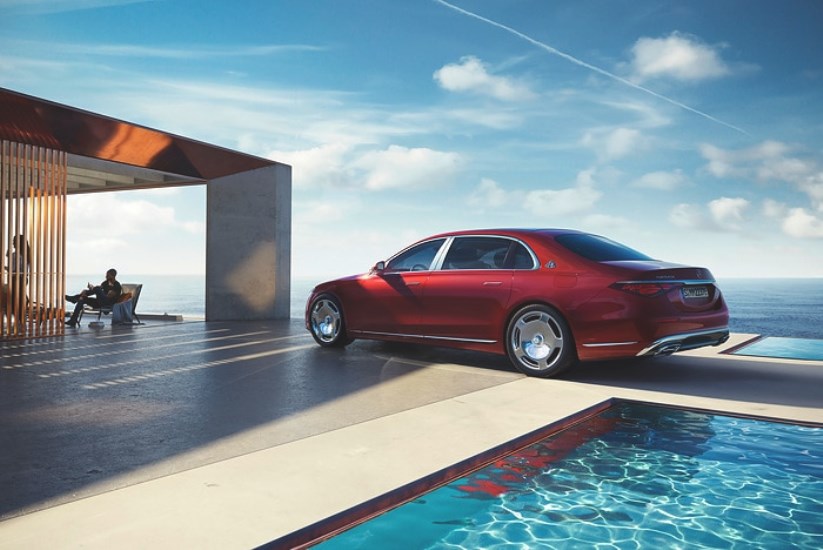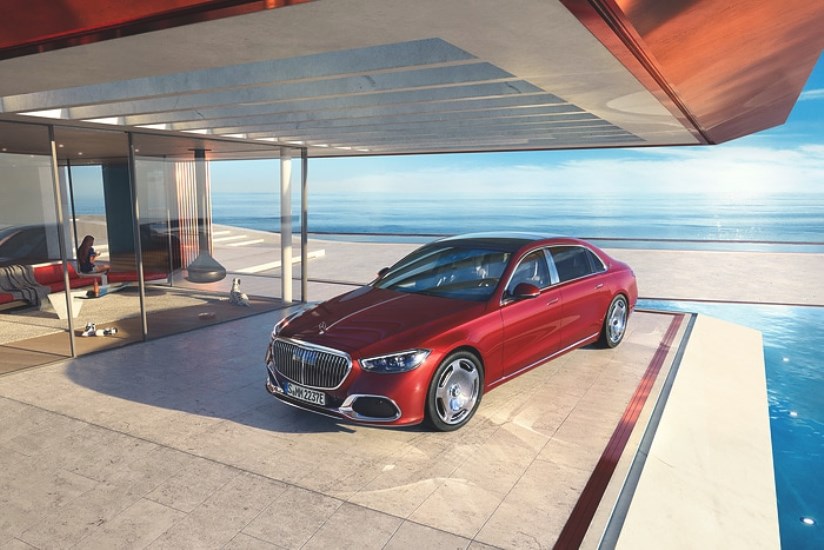
The Mercedes‑Maybach S 580 e (preliminary values, fuel consumption combined, weighted: 1.0‑0.8 l/100 km, CO2 emissions combined, weighted: 23‑18 g/km, electricity consumption combined, weighted: 25.0‑22.9 kWh/100 km)1 marks the beginning of a new era for the brand with a more than 100‑year heritage.
With an electric range of up to 100 kilometres (WLTP)1 depending on the vehicle’s configuration and an electric-drive output of 110 kW/150 hp the luxury saloon can travel locally CO2 emission-free, both in the city and on interurban journeys.
The Mercedes‑Maybach S 580 e is initially available in China, followed by Thailand, Europe and other countries.
The Mercedes‑Maybach brand has been regarded as the benchmark for automotive luxury, style and status since Wilhelm and Karl Maybach began building automobiles in 1921. Their aim was to create “the very best of the very best,” an aspiration that continues to characterise the unique aura of Mercedes‑Maybach to this day.
The legendary brand is continually reinventing itself to exceed the highest expectations of the extraordinary. With success: the current Mercedes‑Maybach S‑Class has seen steadily growing demand since its market launch in 2021.
“With our first plug-in hybrid model, we are combining the luxury experience typical of Maybach with emission-free local driving when in electric driving mode. The Mercedes‑Maybach S 580 e represents a pivotal step in the transformation of our heritage brand into an electric future. We will present our first fully electric model as early as 2023.”
Daniel Lescow, Head of Mercedes‑Maybach at Mercedes‑Benz Group AG
The Mercedes‑Maybach S 580 e opens up an even more impressive experience of silence. In purely electric driving mode, the already exceptionally quiet interior becomes even quieter.
The saloon glides along almost silently and with zero local emissions. Electric-specific features are discreetly integrated with typical Maybach expertise – such as the concealed charging socket on the left side of the vehicle and blue colour accents in the headlights or the battery charging state in the instrument panel.
The basis of the hybrid drive is a highly efficient inline six-cylinder engine from the current Mercedes‑Benz petrol engine generation, combining 270 kW/367 hp of powerful performance with low fuel consumption and exhaust emissions.
A combined system output of 375 kW/510 hp and maximum torque of 750 Nm guarantees superior driving performance. The electric motor’s maximum torque of 440 Nm is available immediately from the first engine revolution, resulting in rapid acceleration and dynamic handling. The Mercedes‑Maybach S 580 e accelerates from 0-100 km/h in 5.1 seconds.
An 11 kW charger is fitted as standard for three-phase charging from the AC mains. A 60 kW DC charger for fast charging with direct current is available as an option. Even when the battery is almost completely empty, a full charge can be achieved in around 30 minutes using the latter.
The most important data at a glance
| S 580 e | ||
| Cylinders petrol engine (arrangement; number) | I6 | |
| Displacement petrol engine | cc | 2,999 |
| Rated output petrol engine | kW/hp | 270/367 |
| at | rpm | 5,500-6,100 |
| Rated torque petrol engine | Nm | 500 |
| at | rpm | 1,600-4,500 |
| Rated output electric motor | kW/hp | 110/150 |
| Rated torque electric motor | Nm | 440 |
| System output | kW/hp | 375/510 |
| System torque | Nm | 750 |
| Combined fuel consumption, weighted (WLTP)2 | l/100 km | 1.0-0.8 |
| Combined CO2 emissions, weighted(WLTP)2 | g/km | 23-18 |
| Combined electrical consumption, weighted (WLTP)2 | kWh/100 km | 25.0-22.9 |
| Electric range (WLTP: EAER combined)2 | km | up to 100 |
| Acceleration 0-100 km/h | s | 5.1 |
| Top speed | km/h | 250 |
| Top speed electric | km/h | 140 |
1Figures for fuel consumption, CO2 emissions and power consumption are provisional and were determined internally in accordance with the “WLTP test procedure” certification method. EC type approval and a certificate of conformity with official figures are not yet available. Differences between the stated figures and the official values are possible.
2Figures for fuel consumption, CO2 emissions and power consumption are provisional and were determined internally in accordance with the “WLTP test procedure” certification method. EC type approval and a certificate of conformity with official figures are not yet available. Differences between the stated figures and the official values are possible.
































